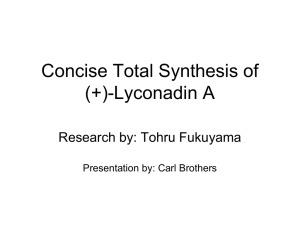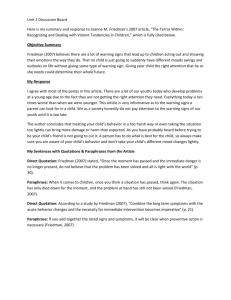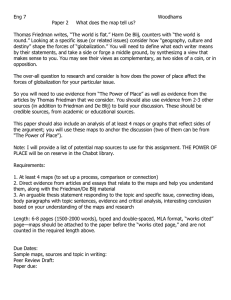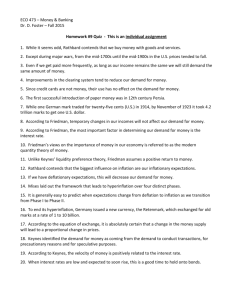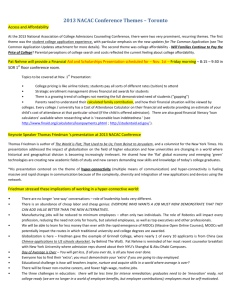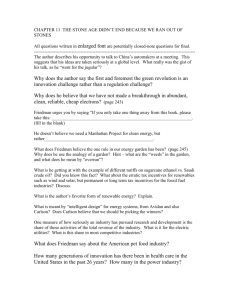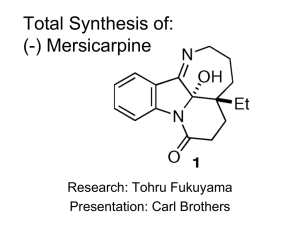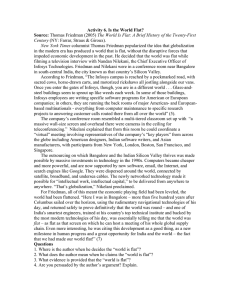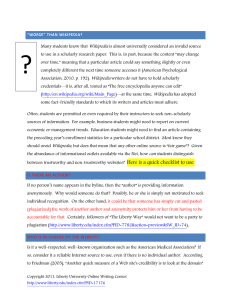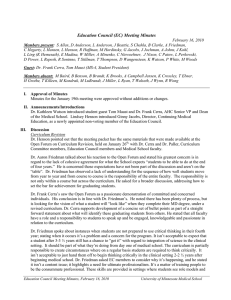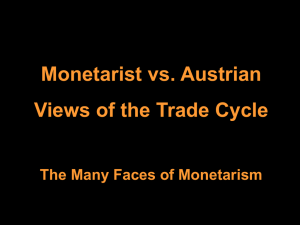17.037/17.038 American Political Thought Spring 2004
advertisement
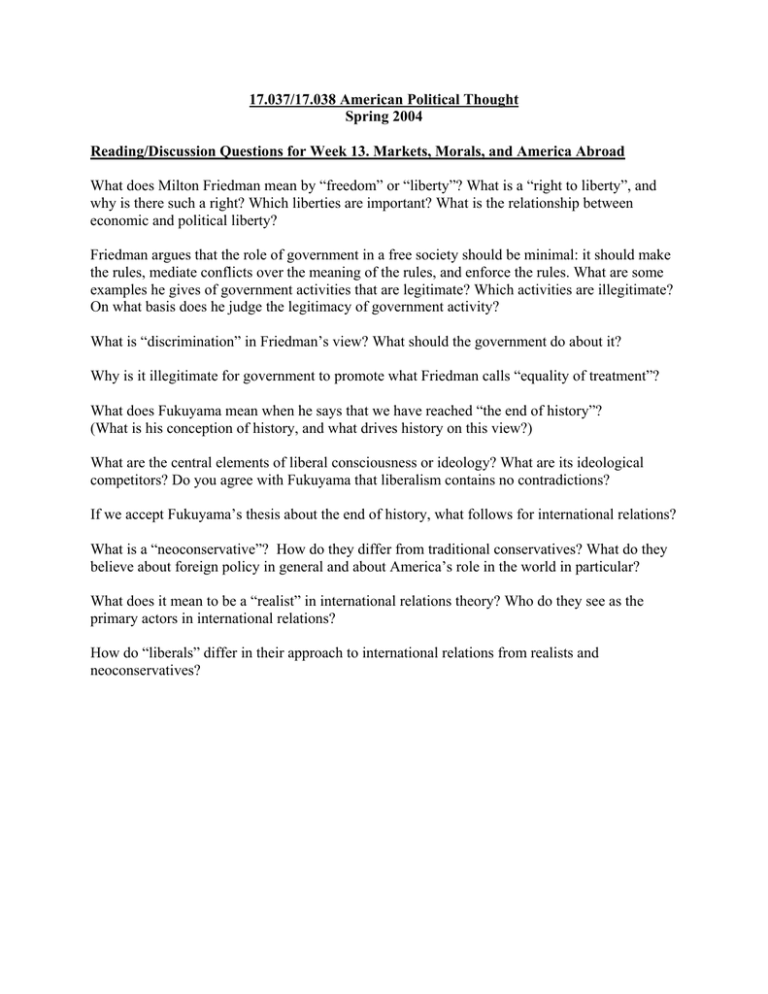
17.037/17.038 American Political Thought Spring 2004 Reading/Discussion Questions for Week 13. Markets, Morals, and America Abroad What does Milton Friedman mean by “freedom” or “liberty”? What is a “right to liberty”, and why is there such a right? Which liberties are important? What is the relationship between economic and political liberty? Friedman argues that the role of government in a free society should be minimal: it should make the rules, mediate conflicts over the meaning of the rules, and enforce the rules. What are some examples he gives of government activities that are legitimate? Which activities are illegitimate? On what basis does he judge the legitimacy of government activity? What is “discrimination” in Friedman’s view? What should the government do about it? Why is it illegitimate for government to promote what Friedman calls “equality of treatment”? What does Fukuyama mean when he says that we have reached “the end of history”? (What is his conception of history, and what drives history on this view?) What are the central elements of liberal consciousness or ideology? What are its ideological competitors? Do you agree with Fukuyama that liberalism contains no contradictions? If we accept Fukuyama’s thesis about the end of history, what follows for international relations? What is a “neoconservative”? How do they differ from traditional conservatives? What do they believe about foreign policy in general and about America’s role in the world in particular? What does it mean to be a “realist” in international relations theory? Who do they see as the primary actors in international relations? How do “liberals” differ in their approach to international relations from realists and neoconservatives?
